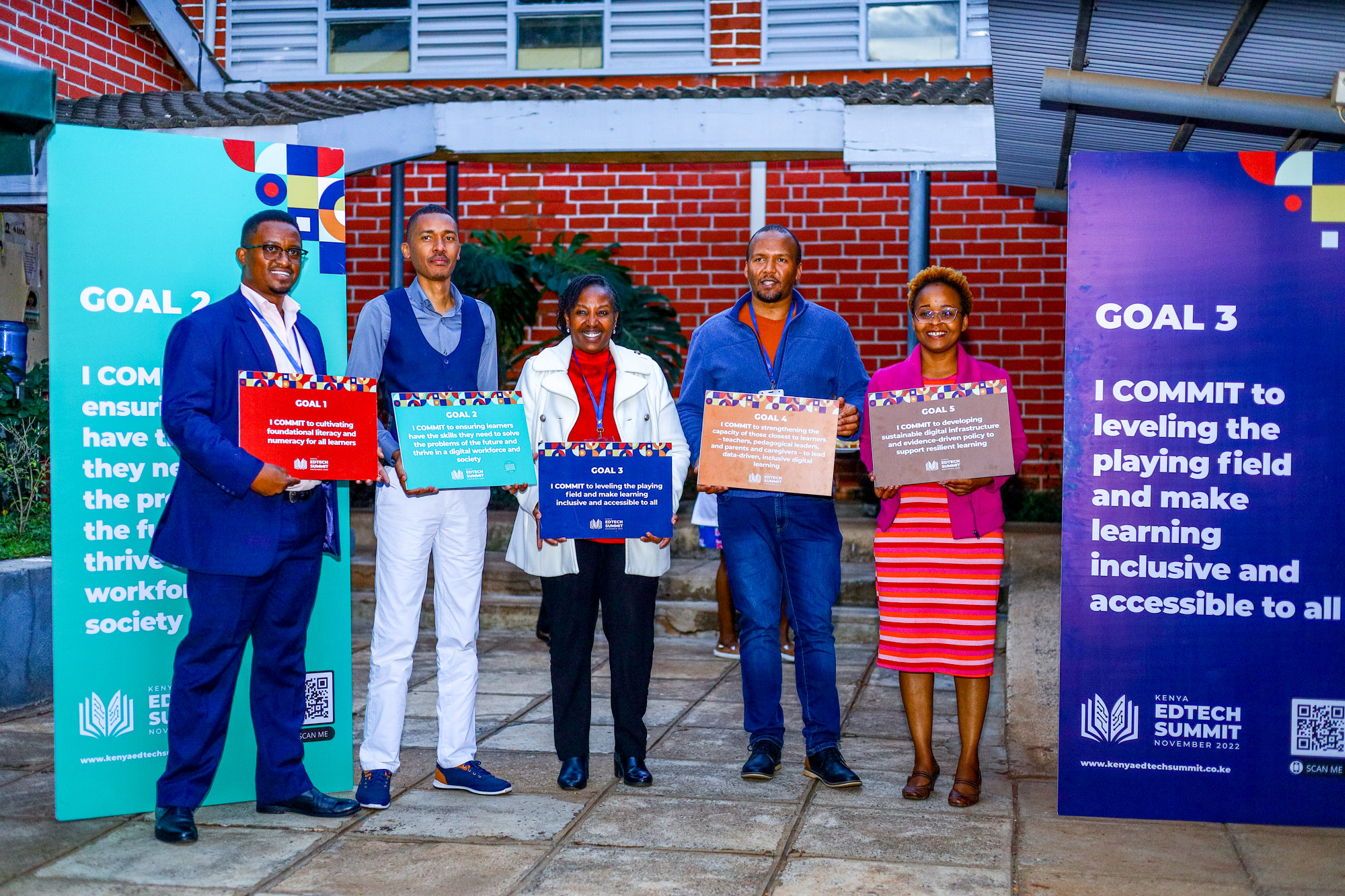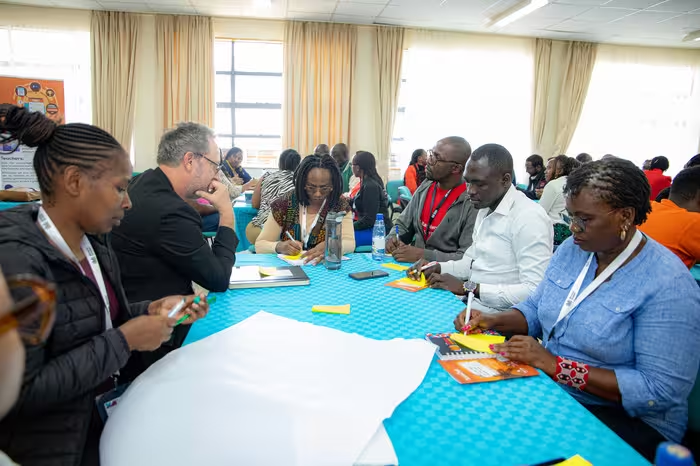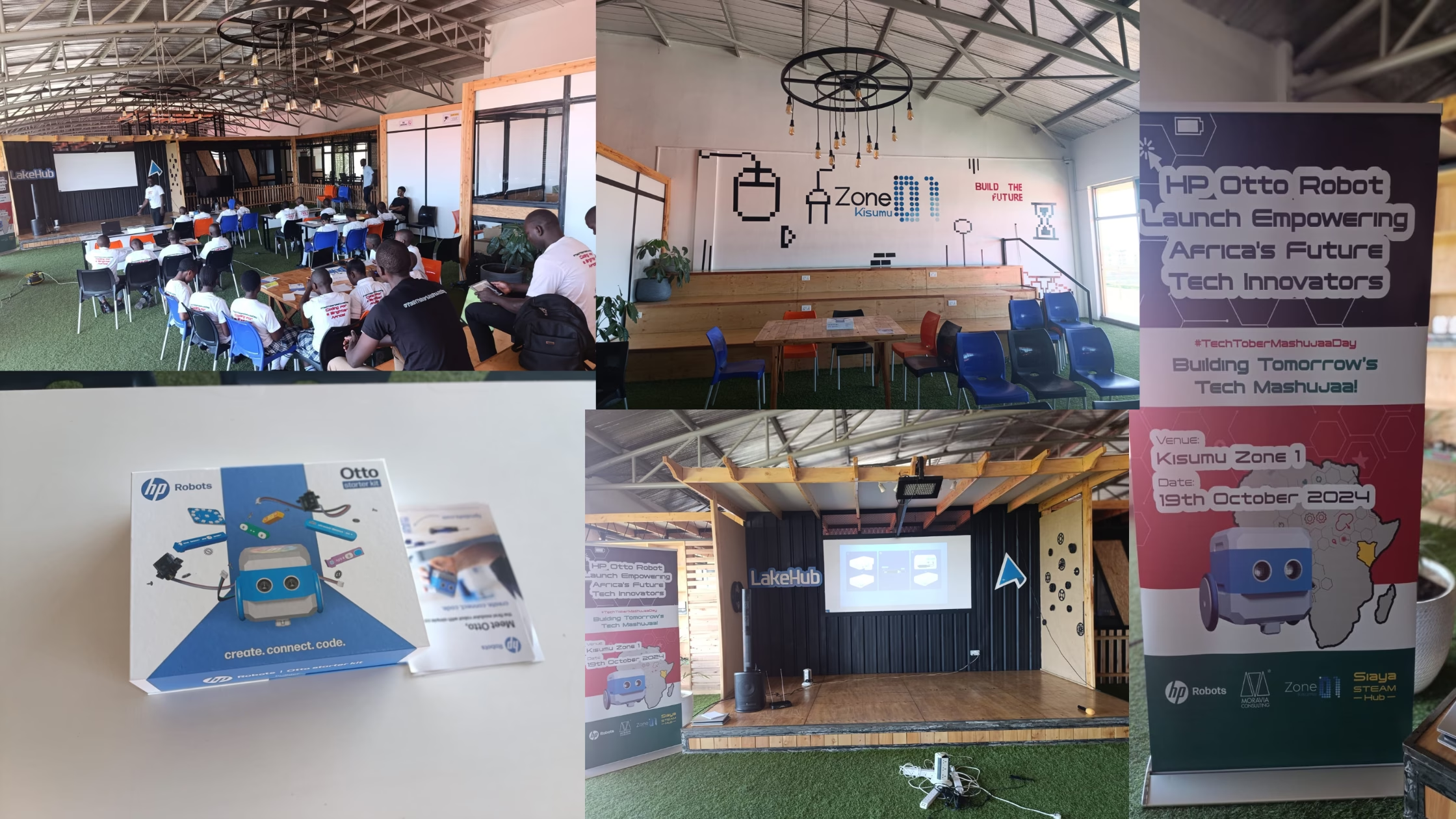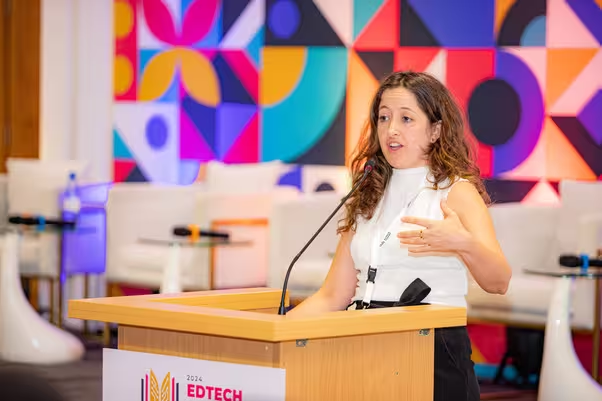In an increasingly digital world, the integration of technology in education has become a crucial component in preparing learners for the challenges and opportunities of the future. Recognizing the significance of this transformation, EdTech East Africa is proud to present the inaugural workshop series of Kenya’s EdTech Collective Action Fridays.
The EdTech Collective Action Fridays workshops will span five weeks, commencing on July 14th and concluding on August 25th. Each session will be curated around one of the five specific Collective Action goals. Put together, these goals reflect the challenges and opportunities of tech integration in education. Ultimately encouraging, and in some cases provoking, all of us – learners, educators, administrators, parents, government officials, and experts – to action.
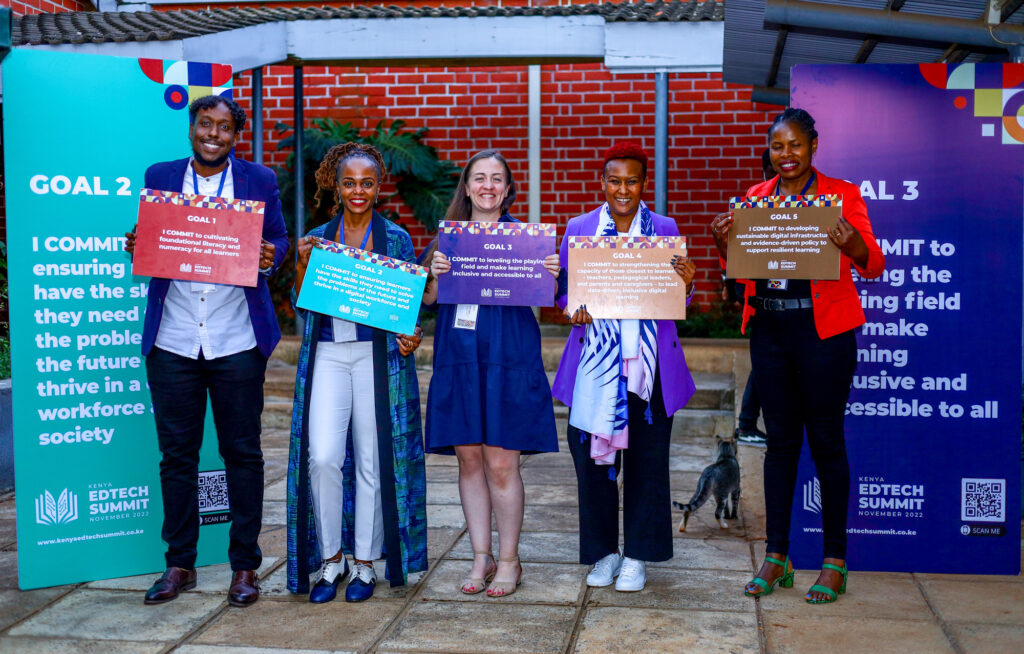
The Collective Action Goals
Launched in November 2022, the Collective Action Goals identify the challenges that characterise Kenya’s EdTech space. These goals are grounded in the government’s ICT in Education and Training Policy 2021, which aims to promote an inclusive enabling environment for ICT in education by mobilising resources, empowering parents, educators, and administrators, and enhancing curriculum development.
The Collective Action Agenda synthesises this policy into five actionable goals upon which resources can be mobilised, stakeholders empowered, and curriculums enhanced. Notably, the Agenda embraces and embodies the collaborative spirit emphasised in the 2021 policy; directing our attention to five focus areas. They are: (1) foundational literacy & numeracy; (2) skills for the future; (3) equity and inclusion; (4) capacity building for educators and parents; and (5) digital infrastructure and enabling policy. In so doing, these Goals do more than present a way forward. They affirm the reality that educational technology is only as impactful as its reach. And aim to expand this reach.
Overview of the Workshop Series
Accordingly, each workshop is facilitated by a panel of vibrant moderators and partners who are experts in their respective fields. Our experts will bring a wealth of experience and a deep understanding of the challenges and opportunities that arise when integrating technology into education.
- Cultivating Foundational Literacy and Numeracy for All Learners | 14 Jul
The first workshop will focus on empowering learners with essential literacy and numeracy skills. Participants will explore innovative approaches, digital tools, and resources that can enhance foundational learning for students across Kenya.
The workshop will be co-hosted with EdTech Hub, an organisation that conducts rigorous academic research to provide evidence-based advice about how to use technology in education. Presently, EdTech Hub is researching how digital personalised learning can improve foundational literacy and numeracy outcomes. As well as how to improve phone-based learning and the role it can play in curriculum delivery. This is addition to their work with the Kenya Institute for Curriculum Delivery, assisting them in the technological aspects of the Competency Based Curriculum. EdTech Hub also runs a course for EdTech entrepreneurs that helps support the integration of evidence into the design and deployment of edtech tools for improving foundational literacy and numeracy. e
- Empowering Learners for the Digital Workforce and Society | 4 Aug
The second workshop will delve into equipping learners with the necessary skills to thrive in a digital-centric workforce and society. Discussions will centre around emerging technologies, digital literacy, and ways to prepare students to solve the problems of the future.
This workshop will be co-hosted with Jobtech Alliance, an ecosystem-building organisation that works with digital platforms that connect people to work opportunities that build livelihoods.
- Developing Inclusive and Accessible Technology in Education | 11 Aug
Inclusivity and accessibility are vital for ensuring that all learners have equal opportunities to excel. The third workshop will explore how technology can be harnessed to cater to diverse learner needs, enabling personalised learning experiences for students with different abilities.
This workshop will be hosted by the Regional Education Learning Initiative (RELI) is a network of educational institutions, nonprofits, and state-sponsored organisations committed to ensuring accessibility and inclusivity in education across Africa.
- Strengthening the Capacity of Education Leaders | 18 Aug
The fourth workshop will focus on empowering teachers, pedagogical leaders, parents, and caregivers with the skills and knowledge needed to make data-driven decisions in education. Participants will explore how data analytics and evidence-based practices can inform and enhance teaching and learning outcomes.
- Forging Reliable and Sustainable Digital Infrastructure and Policies | 25 Aug
The final workshop will emphasise the importance of reliable digital infrastructure and evidence-driven policies in supporting resilient learning environments. Participants will discuss strategies for building robust technological infrastructure and explore policies that promote the effective and sustainable integration of technology in education.
Each workshop will be designed to be interactive and engaging, encouraging active participation from attendees. Participants will have the opportunity to contribute their ideas, share best practices, and collaborate with peers, fostering a sense of collective action and community-driven change.
Throughout the workshop series, attendees will work together to construct a comprehensive systems map that showcases the interconnections between various stakeholders, technologies, policies, and challenges in the EdTech ecosystem in Kenya. This visual representation will provide a valuable resource for understanding the complex dynamics of the educational landscape and identifying opportunities for collaboration and innovation.
Conclusion:
Kenya’s EdTech Collective Action Fridays present an exciting opportunity for educators, policymakers, entrepreneurs, and other stakeholders in the education sector to come together, share ideas, and collectively shape the future of education in Kenya. By focusing on the five Collective Action goals, these workshops aim to foster a holistic approach to leveraging technology in education, ultimately benefiting learners and paving the way for a more inclusive, innovative, and resilient education system.
Yet, they are more than a series of workshops designed to bring together a diversity of perspectives dedicated to improving education quality. Indeed, by creating a collaborative space, Collective Action Fridays remind us that no single actor is responsible for addressing the shortcomings in our education system. They remind us that we are not alone in our desire to fully realise educations’ transformative capabilities, and what is required of us is not a series of large leaps, but small, consistent steps toward the dream we all seek.
This vision is nothing less than a new social contract for education. One that is cognizant of our relationships with each other, with the planet, and with technology, and aims to nurture and strengthen them. One that is appreciative of the Kenyan context, and reflects our needs, capabilities and limitations. A social contract, that must be implemented.
Ultimately, this Collective Action Fridays invites us to do. For that reason alone, it has valuable lessons for each and every one of us.
